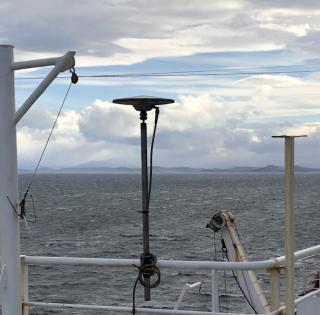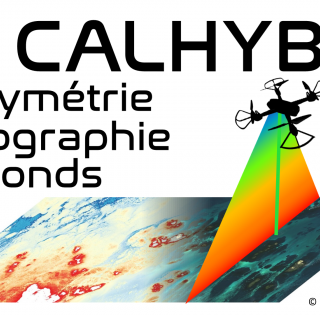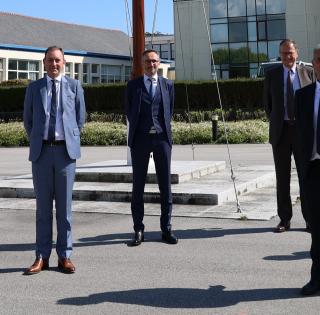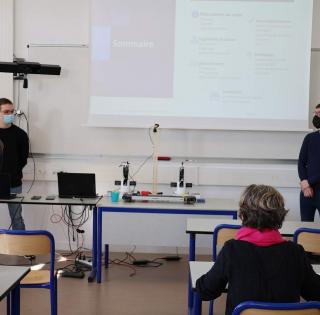
Graduates can pursue careers as consulting, design, test, integration, system or R&D engineers in a wide variety of industries (defense, maritime, healthcare, transport, energy, aviation and space).
• Observation systems,
• Waves and propagation,
• Telecommunications,
• Sensors,
• Information processing
• Decision support
• Artificial intelligence and machine learning, etc.

The major’s strong points
Industry-leading training to address current challenges faced by numerous businesses
The acquisition, processing and analysis of large and heterogeneous data sets using advanced artificial intelligence technology is a key issue for numerous companies. The aim is to explore single- or multi-source data sets to identify and extract useful information for decision-making.
Earn a double degree
Students in this major can choose to also follow the Signal and Telecommunications track of the Master in Networks and Telecommunications of the Université de Brest (UBO). This double degree is recommended for students who wish to pursue a PhD.
The expertise acquired in this major includes physical phenomena modeling, single- and multi-sensor system simulation and testing, observation embedded systems, the analysis, processing and interpretation of large and heterogeneous data sets and decision support.
Graduates have multidisciplinary expertise covering signal and image processing, automation, artificial intelligence, decision and estimation theory, electronics and embedded systems, transmission techniques and systems engineering.
|
Target Careers |
Activity sectors |
|---|---|
|
|
Examples of end-of-study projects by students majoring in Observation Systems and Artificial Intelligence:
- Characterization of the maritime environment and usual targets, with the aim of improving detection rates
- Detection of unidentified floating objects
- Development of a SAR processor
- Automatic attacks on a website in an SDN environment for development of counter measures.





















